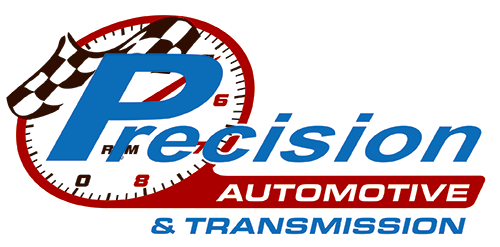A lot of things go into maintaining your vehicle so it performs safely and at its best. Proper wheel alignment is one thing that plays an important role. Wheel alignment affects fuel efficiency, tire wear, tire performance, vehicle handling, and maneuverability. Wheel alignment is a big factor in a vehicle’s steering response. This leads many to the most frequently asked question about tire alignment, “When should I get an alignment?” There is no absolute answer to the question since all vehicles have different service requirements. The technicians here at Precisions Automotive and Transmission will be able to do a quick test to determine if alignment if necessary. He or she can also give you advice about how often you need to have alignments done.
What Is Wheel Alignment?
Vehicles rely on precision to function safely. Tires and wheels can easily become misaligned due to anything from road conditions and driving habits to hitting a big bump or getting into a minor accident. Most often, the front wheels are more susceptible to losing proper alignment, though rear wheels can also experience issues with displacement and proper alignment in many of today’s vehicles.
The process of alignment varies depending on the vehicle. Passenger cars with a modern four-wheel suspension receive a different alignment process when compared to a wishbone suspension, or the wheels and tires on a 24-foot box truck that is used to haul heavy loads. That’s why tire alignment is something that should be performed by qualified service technicians. Our technicians are ASE certified and possess the expertise and equipment necessary to properly align tires to the exact specifications of specific vehicle makes and models.
The Importance of Wheel Alignment
When tires and wheels are out of alignment, many problems can develop within a vehicle’s various systems. When alignment is really bad, it’s easy to tell as you drive. The vehicle will pull one way or the other. In other words, if you let go of the steering wheel and the vehicle immediately steers to the left or right, there’s a good chance that there’s an issue with your wheel alignment. Misalignment may also cause vibration that you’ll feel especially in the steering wheel.
Simply put, proper wheel alignments allow for safer driving. Wheel alignment will also extend the life of your tires. Incorrectly aligned wheels are one of the main causes for uneven wear on a tire. Uneven tread wear will decrease the safe driving life of a tire, or in a worst-case scenario may damage a tire beyond repair, requiring premature replacement.
Getting a Wheel Alignment
Known as everything from an alignment job to wheel alignment or tire alignment, this service is one that must be performed by a trained, professional technician. Because wheels and tires being a part of the intricate suspension system, it’s helpful to rely on the pros at Precision Automotive & Transmission. Our technicians are certified by The National Institute for Automotive Service Excellence (ASE). They’re qualified to install tires and wheels, repair them, and perform alignment tests and four-wheel alignments.
It’s recommended to have a tire alignment any time you have a new set of tires installed on your vehicle. Precision Automotive & Transmission along with your vehicle manufacturer recommend regular alignments according to the automaker’s specifications for your particular model. Check your vehicle owner’s manual for more information about your service schedule or call us at 903-784-7362. Our technicians can quickly test to see if there are wear patterns that suggest an alignment issue. They can also perform more in-depth diagnostic tests to ensure that your wheel alignment and the rest of your vehicle meets all safety and performance specifications.
